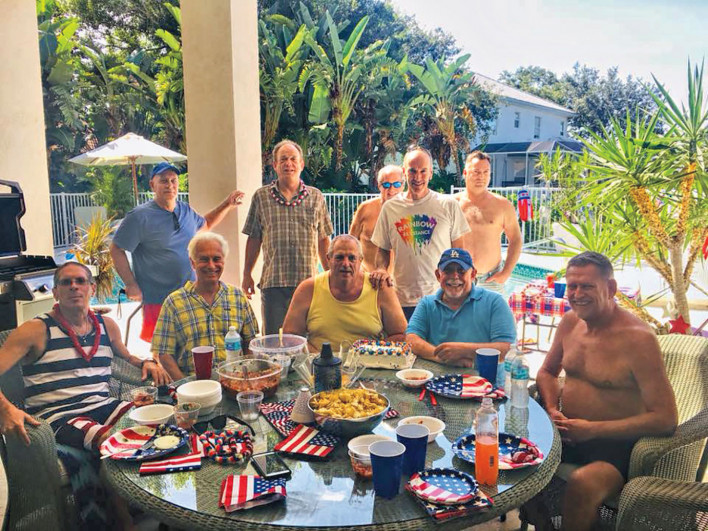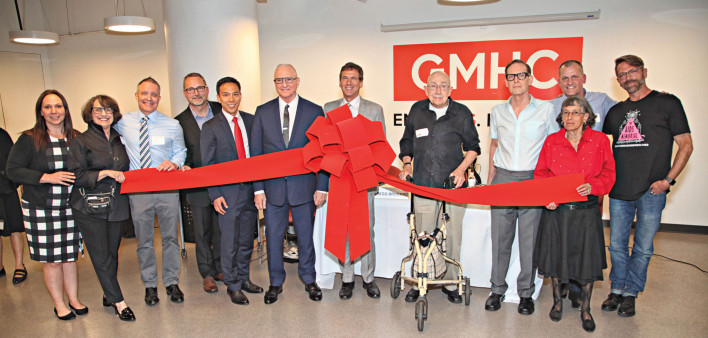Attention long-term survivors, here’s some news you can use. Research shows that isolation can lead to feeling depressed and not wanting to leave the house or take your meds (clearly not good for your health). But new groups are popping up around the country with the specific goal of helping you connect or reconnect with others. Here are two such efforts.
The Terry Brenneis Hub for Long-Term Survivors is part of Gay Men’s Health Crisis (GMHC) in New York City, but Hub participants don’t have to be GMHC clients. In fact, curious folks from anywhere can follow the Hub’s Facebook page or reach out to the group’s leaders: Gregg Bruckno, BEd, himself a long-term HIV survivor, and Susan Rowley, JD, LMSW, who is also the director of the GMHC Hotline and Buddy Program.
The Hub hosts monthly educational workshops on topics such as body image, self-compassion and common HIV comorbidities, including bone density issues and heart problems; what’s more, the workshops include time to socialize. Events like these are important, Bruckno says, because long-term survivors have said they felt there was nothing for them beyond support groups. Plus, they have expressed a lot of interest in learning specific HIV-related information.
The Hub also connects people to non-GMHC events held for long-term survivors—such as a recent spaghetti dinner and movie screening at a West Village church—and it has provided guidance and inspiration to organizations wanting to better serve their members who are long-term survivors. “We’ve been doing a little informal capacity building,” Rowley says of the growing interest in this population.
Because some long-term survivors aren’t internet savvy or feel discriminated against or shamed when they use apps and social media, the Hub offers them an email list and an active phone presence; it’s also working on a snail-mail newsletter.
“A lot of long-term survivors who are gay don’t have social connections anymore. [Their friends] have died or moved away, or they’re still ostracized from their family,” says Bruckno, who points to another problem causing people to isolate: “Ageism is an issue in this country—no matter if you’re gay or HIV positive.”
“When people start to isolate,” Rowley adds, “they stop taking care of themselves and they lose connections. The internet is not enough. TV is not enough. People need social connections to have a healthy life.”
To contact the Hub, call 212.367.1063 or email LTHSHub@gmhc.org.

A pool party in South Florida
The Metropolitan Community Church of the Palm Beaches (MCCPB) HIV Long-Term Survivors Network was launched in Palm Beach Gardens by Chris Lacharite, a retired nurse who was approached by the church’s pastor in an effort to do more for the HIV community (side note: South Florida leads the nation in new HIV diagnoses).
The MCCPB group meets three to four times a month for a variety of fun activities: board games, pool parties, the all-important spaghetti dinner and, in the near future, yoga, movement classes and educational events about healthy aging.
Lacharite understands firsthand the needs of long-term survivors—he is one. “I lost my partner and best friend within six months and many more friends over the course of a decade,” he says. “The grief and rage I experienced have resulted in several mental health issues that I deal with to this day.”
As a practicing nurse, he had patients who were long-term survivors. “Many verbalized concerns about feelings of being left behind and not understood by the HIV community, especially younger HIV-positive individuals and providers,” he recalls. “Many of my patients had inadequate financial resources because of careers cut short and were living with multiple physical and emotional problems associated with long-term survivorship. Many were isolated.”
In launching the network, Lacharite drew on the Let’s Kick ASS (AIDS Survivor Syndrome) movement begun in San Francisco; Lacharite also received seed money from a grant via the cycling fundraiser SMART Ride (Southern Most AIDS/HIV Ride).
“Our goal is to help build and maintain a resilient community of HIV long-term survivors,” Lacharite says. They’ll accomplish that through “providing social, educational and other activities that nurture connecting relationships with others and promote life-affirming self-care.”
To contact Lacharite, call 561.775.5900 or email him at chris@mccpb.org







4 Comments
4 Comments